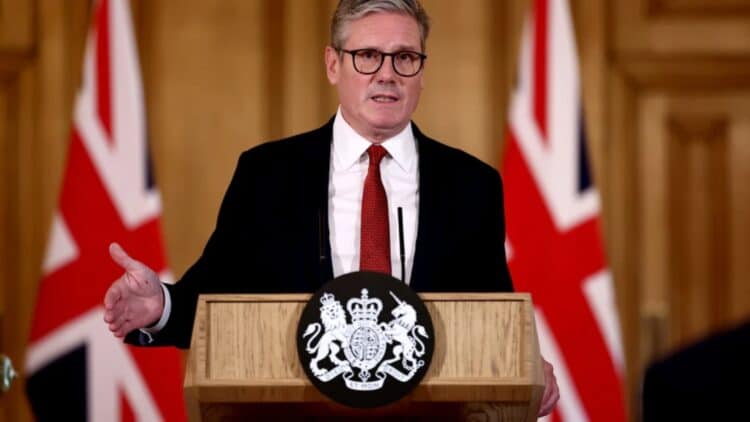The UK government is reviewing the possibility of introducing a ban on smacking children in England, following its prohibition in Scotland, Wales, and Jersey. The Department for Education has confirmed that Labour ministers are examining how they could bring such legislation into effect, after previous Conservative-led governments rejected similar proposals.
Calls for Change: The Push for a Smacking Ban
The renewed interest in a smacking ban follows calls from the Children’s Commissioner for England, Dame Rachel de Souza, who has been vocal about the issue. Her concerns were heightened after the tragic death of 10-year-old Sara Sharif. Dame Rachel argues that a ban on corporal punishment could help prevent violence against children from escalating.
Taking to social media, Dame Rachel wrote, “If we are serious about keeping every child safe, it’s time England takes this necessary step. Too many children have been harmed or killed at the hands of the people who should love and care for them most.”
Currently, under the Children Act 2004, it is illegal to assault a child in a way that causes actual bodily or grievous harm in England. However, parents or carers are still legally allowed to physically discipline their children, as long as it doesn’t cross the threshold of harm. This loophole has left many child welfare organisations concerned, with groups like the NSPCC and Barnardo’s being long-standing advocates for outlawing all forms of corporal punishment.
The Current Landscape: Where Smacking is Already Banned
In recent years, several parts of the UK have moved towards outlawing smacking. Scotland, Wales, and Jersey have all banned the practice through their devolved governments. These regions now categorise physical punishment of children as unlawful, marking a shift in societal attitudes towards the treatment of children.
Plans for a similar law in England were previously rejected by the Conservative government, with the most recent rejection occurring last year. The Conservatives had long held the belief that parents should be trusted to discipline their children as they see fit. However, the Labour Party, currently in government, appears to be taking a different stance.
Public Opinion: Divided on the Issue
The issue of smacking is one that divides public opinion in England. According to a YouGov poll conducted earlier this year, two-thirds of English people are opposed to the practice of smacking children. Despite this, there remains a segment of the population who argue that light smacking can be an effective and reasonable form of discipline when used by responsible parents.
For advocates of the ban, including many in the child welfare sector, smacking is a form of physical violence that can lead to further harm and normalise the use of force in parenting. They argue that banning it is a crucial step in protecting children from abuse.
Government’s Next Steps: Learning from Wales and Scotland
A spokesperson from the Department for Education has indicated that the government is carefully examining the legal changes made in Wales and Scotland. These regions have set a precedent in banning corporal punishment entirely, and their experience may serve as a model for England.
The government spokesperson stated, “Any form of violence towards a child is completely unacceptable, and we are looking closely at the legal changes made in Wales and Scotland as we consider whether there is any more we could do in this area. We are already supporting teachers, social workers, and all safeguarding professionals to spot the signs of abuse or neglect more quickly, including with our mandatory framework for safeguarding children.”
This reflects the government’s commitment to improving child protection laws, while still weighing the cultural and societal impact of banning smacking altogether.
A Controversial Path Ahead
The debate over banning smacking in England is far from over. While child protection advocates are pushing for stricter laws, there is still resistance from those who believe in a parent’s right to discipline their child. The government’s decision will likely have far-reaching implications for families, educators, and safeguarding professionals.
As Labour ministers continue to review the matter, one thing is clear: the protection of children is a priority, and the government is actively considering how best to achieve this.
You may also like: Thirsty for more cash? Water companies propose whopping 84% price hikes





